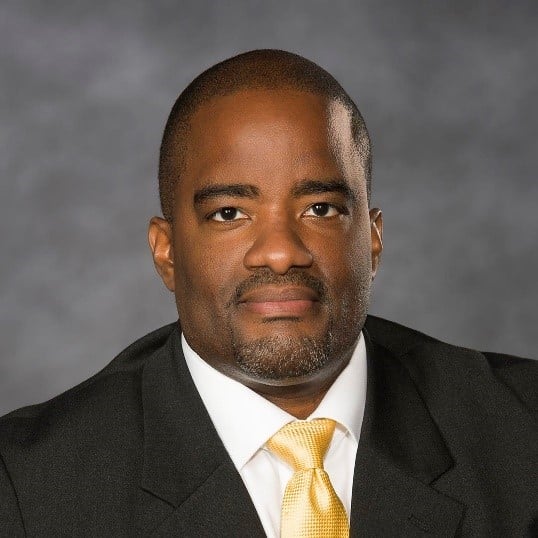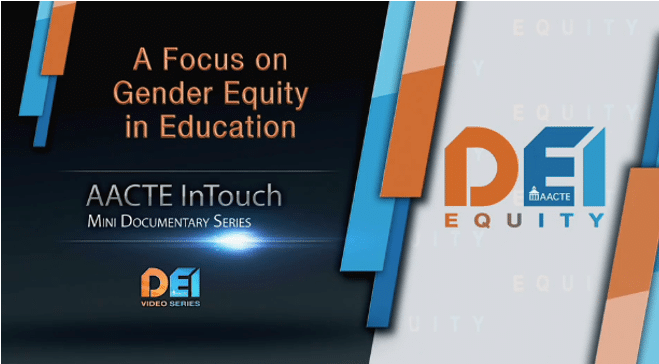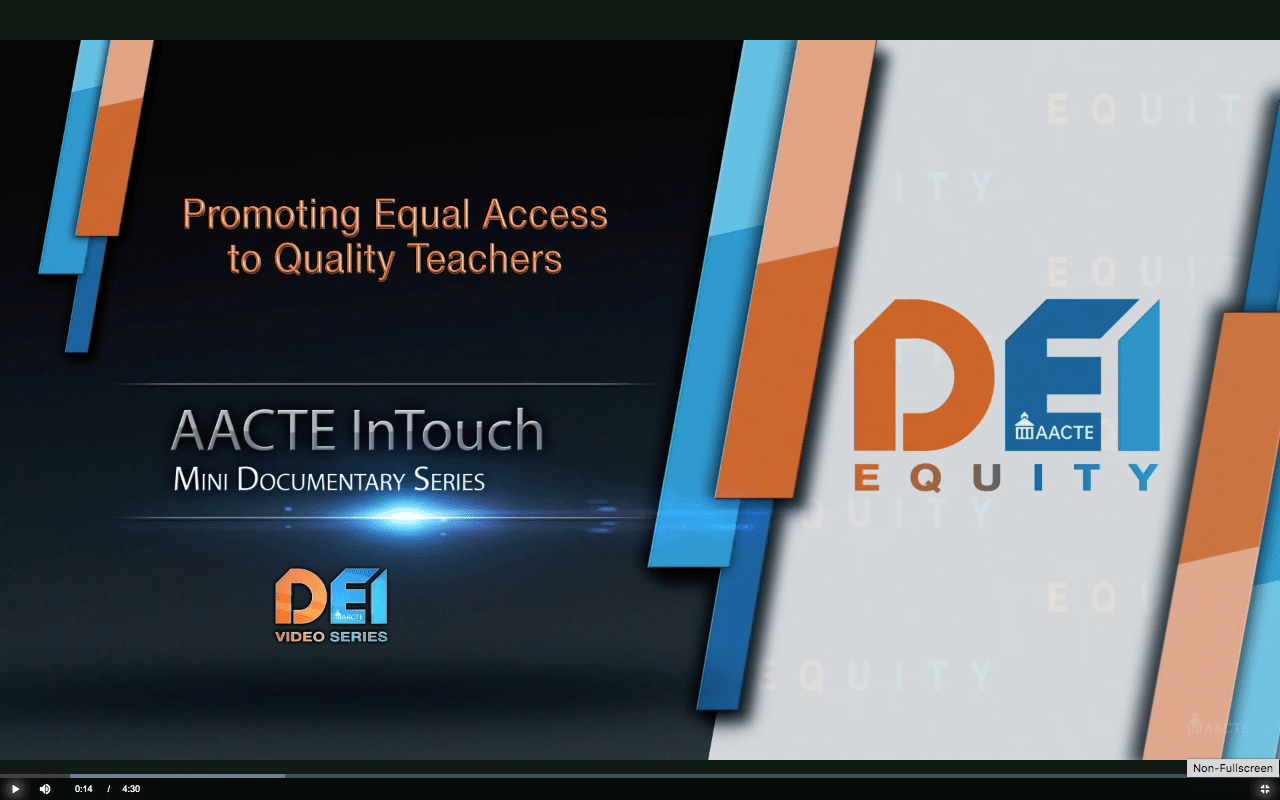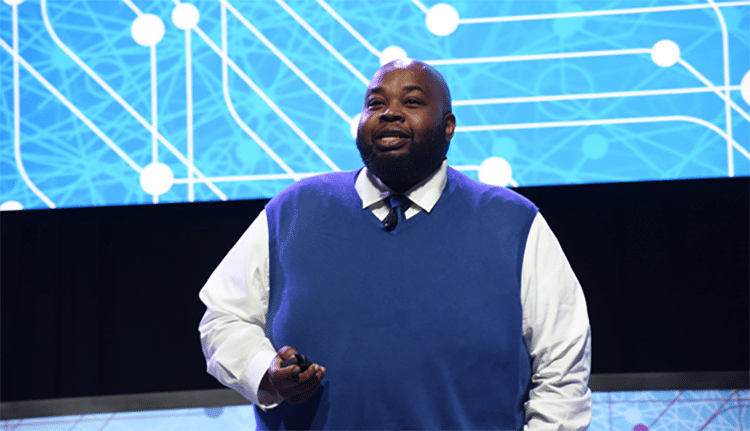18 Jun2020
By Andrew Daire
This article originally appeared on the School of Education at Virginia Commonwealth University website and is reprinted with permission.
 The VCU School of Education wishes to express our solidarity with the recent anti-racist protests and efforts to eradicate structural and systemic racism that began after the brutal murder of George Floyd in Minneapolis by police officers. His murder is not just a recent upsetting event, as so many other incidents come to mind: Amy Cooper in New York calling the police with false allegations regarding a black man; Ahmad Aubrey who was shot to death by Gregory and Travis McMichael; Breonna Taylor who was killed by police raiding her home; Eric Garner, and on and on and on. These incidents, and many more, are part of a pattern of ongoing, systemic, racist behavior against black people in this country since the beginning of slavery. Additionally, efforts to eradicate structural and systemic racism must continue. The grief that people of color are experiencing goes well beyond these recent events but is historical grief, exacerbated by these events.
The VCU School of Education wishes to express our solidarity with the recent anti-racist protests and efforts to eradicate structural and systemic racism that began after the brutal murder of George Floyd in Minneapolis by police officers. His murder is not just a recent upsetting event, as so many other incidents come to mind: Amy Cooper in New York calling the police with false allegations regarding a black man; Ahmad Aubrey who was shot to death by Gregory and Travis McMichael; Breonna Taylor who was killed by police raiding her home; Eric Garner, and on and on and on. These incidents, and many more, are part of a pattern of ongoing, systemic, racist behavior against black people in this country since the beginning of slavery. Additionally, efforts to eradicate structural and systemic racism must continue. The grief that people of color are experiencing goes well beyond these recent events but is historical grief, exacerbated by these events.
We will support this movement with not just words, but actions.
15 Jun2020
By Linda Darling-Hammond and Janel George

This article originally appeared on the Learning Policy Institute Blog and is reprinted with permission.
The protests now enveloping our nation are, in one sense, long overdue. The recent police killings of George Floyd, Breonna Taylor, and Tony McDade are not isolated incidents: Every year in the United States, more than 1,000 civilians are killed by police, and Black people are disproportionately harmed. These murders and the lack of justice that has routinely accompanied them are, in turn, part of a pattern of institutionalized racism that limits the opportunities of African Americans and other people of color in every aspect of society: employment, housing, health care, and, yes, education.
12 Jun2020
By Jacqueline Rodriguez
 Learners of all ages are being impacted by COVID-19 through school closures, the transition to online learning, and the shortage of teachers and faculty across the nation. AACTE continues its long tradition of addressing the educator career continuum and supporting PK-12 learners in America’s public schools by joining the Educating All Learners Alliance (EALA), an alliance dedicated to equity for complex learners.
Learners of all ages are being impacted by COVID-19 through school closures, the transition to online learning, and the shortage of teachers and faculty across the nation. AACTE continues its long tradition of addressing the educator career continuum and supporting PK-12 learners in America’s public schools by joining the Educating All Learners Alliance (EALA), an alliance dedicated to equity for complex learners.
EALA is specifically designed to help ensure the continuity of special education services during remote instruction and to spotlight best practice approaches for schools and educators. It represents a dynamic alliance of non-partisan groups deeply committed to the success of students with disabilities.
09 Jun2020
By Monika Williams Shealey
The following article is an excerpt from the Rowan University Division of Diversity, Equity and Inclusion blog and is reprinted with permission.
 For the past 2 months our country has been in the grips of a pandemic that has challenged us in unimaginable ways and revealed our strength and courage in the face of fear. Unfortunately, during a time when we should be united against a common enemy, COVID-19, racism and xenophobia has become the cure for some who are inflicted with an irrational hatred and fear of people of color. Let’s not forget we were introduced to this pandemic as the “Chinese Virus” and the result was an onslaught of hate speech directed towards Asians and Asian Americans. We are not ok.
For the past 2 months our country has been in the grips of a pandemic that has challenged us in unimaginable ways and revealed our strength and courage in the face of fear. Unfortunately, during a time when we should be united against a common enemy, COVID-19, racism and xenophobia has become the cure for some who are inflicted with an irrational hatred and fear of people of color. Let’s not forget we were introduced to this pandemic as the “Chinese Virus” and the result was an onslaught of hate speech directed towards Asians and Asian Americans. We are not ok.
It is difficult for Black Americans to forget the legacy of the enslavement of Black bodies for economic consumption, Jim Crow, the civil rights movement and mass incarceration lives on. How does one talk about systemic racism and the oppression of people of color without acknowledging and understanding the current conditions that ensure our country remains divided by race. The election of a Black president was believed to be an indication of how far we’ve come as a country and we even heard that we were living in a post-racial country. Yet, the stories of police brutality, racial violence, and discrimination directed at Black Americans continued. We are not ok.
09 Jun2020
By Nicole Dunn
As our education system continues to provide online learning in the wake of the pandemic, all learning institutions will need to consider the element of equitable access to technology for their students. In the past, increasing our student’s digital access in online and blended learning environments has been on the shoulders of families as opposed to schools. Now that technology is being leveraged for learning in our school systems, low-and moderate-income (LMI) youth need education leaders to build the capability or partner with institutions that can support computers, broadband, and technological support access.
The National Center on Digital Equity in collaboration with the Federal Deposit Insurance Corporation (FDIC), is hosting a series of webinars titled “Community Reinvestment Act, Digital Equity and Systemic Inclusion.” In this four-part series, the FDIC will walk participants through systemic approaches that advance digital equity in LMI communities in support of financial and economic inclusion. With the immediate shift to online learning within our education system, this series brings our focus to stabilizing LMI youth and their communities.
04 Jun2020
By AACTE
On behalf of the American Association of Colleges for Teacher Education (AACTE) Board of Directors, Chair Ann Larson issued the following statement today on race matters in America:
“AACTE leaders are compelled to voice our dissent of the recent, tragic events that have resulted in the horrendous murders of Black Americans. The unjust deaths of George Floyd, Ahmaud Arbery, Breonna Taylor, and many others represent incendiary racism that has deep, historic roots in our society. This profound moment in time has brought despair not only to the Black American community, but also to innumerable individuals, families, and communities representing legions of cultures and ethnicities throughout the country and the world. In the words of Dr. Martin Luther King Jr., ‘Injustice anywhere is a threat to justice everywhere. We are caught in an inescapable network of mutuality, tied in a single garment of destiny. Whatever affects one directly, affects all indirectly.’
It is imperative that educators embrace their responsibility as front line workers in dismantling structural racism within the American education system. Schools play a critical role in educating students about citizenship and societal values, which have long perpetuated the cycle of racial injustice. Educators must be change agents for reversing the miseducation of white people about black and brown people, and for promoting racial equity. There is a critical need for well-prepared, culturally responsive teachers who can educate and guide learners to value the lives of all human beings and hold others accountable in practicing justice, ensuring equitable access, promoting and assuring diversity, fostering inclusive policies and practices in all aspects of our society, and offering hope and optimism to all children.
02 Jun2020
By AACTE

On behalf of the American Association of Colleges for Teacher Education (AACTE), President and CEO Lynn M. Gangone issued the following statement today responding to the killing of George Floyd and systemic racism:
“AACTE acknowledges an insidious threat to the foundation of American democracy—institutional and structural racism. The construct of racism in our country is rooted in the historical, systemic abuse of power, based upon white supremist ideologies, and resulting in white privilege. Racism has long been entrenched in American institutions and policies that reinforce an unjust and disparate allocation of rights and resources to white people, while disallowing them to Black and other people of color—including our institutions of learning.
AACTE is outraged over the recent videos of Amy Cooper weaponizing the police against Chris Cooper in New York City’s Central Park, George Floyd’s murder by a Minneapolis police officer, and the hunting and killing of Ahmaud Aubery by men with ties to their local Georgia police department, as well as the murder of Breonna Taylor by police while sleeping in her home. The latter events represent only a few of the string of killings of Black citizens at the hands of white perpetrators and law enforcement. In each case, the victims were unarmed. In each case, the Black community was forced to mobilize, call out the racist crime, and demand justice that has yet to be realized.
01 Jun2020
AACTE DEI Video: A Focus on Gender Equity in Education
By Jerrica Thurman

Ed Prep Matters features the “Revolutionizing Education” column to spotlight the many ways AACTE, member institutions, and partners are pioneering leading-edge research, models, strategies and programs that focus on the three core values outlined in the current AACTE strategic plan: Diversity, Equity, and Inclusion; Quality and Impact; and Inquiry and Innovation.
In this segment of the Diversity, Equity and Inclusion video series, AACTE members celebrate differences among individuals and promote gender and sexuality diversity as important aspects in preparing teachers to educate diverse student populations. Education research has found that societal stereotypes and biases of male and female roles are often reinforced in our schools and classrooms. The video participants encourage educators to address gender disparities in curriculum, teaching practices, and student engagement.
28 May2020
By Leslie T. Fenwick
Sixty-six years have passed since Brown v. Board of Education. The Brown decision came down in 1954; however, in the 16 dual system states, white resistance stalled school desegregation until the late1960s and early1970s. Since Brown, state and federal courts have steadily engaged litigation about education access, school funding, education equity, and opportunity to learn. In recent years, litigation has challenged school reform schemes such as vouchers, charters, the definition of highly qualified teachers, and the practice of disproportionately placing uncertified teachers-in-training as teachers-of-record in schools and classrooms serving urban poor students of color. These schemes—which are often viewed as new and innovative—have old roots in resistance to Brown[1].
Nearly 70 years of litigation about education access, school funding, education equity, and opportunity to learn has yielded two findings: Money matters. And judicial involvement is critical for ensuring that school funding is equitable. In fact, research has shown that court ordered school finance reform tends to increase state spending in lower-income school districts and decrease expenditure gaps between low and high income districts. A National Bureau of Economic Research study (2015)[2] found:
For children from low income families, increasing per-pupil spending yields large improvements in educational attainment, wages, family income, and reductions in the annual incidence of adult poverty. All of these effects are statistically significant … (p.39).
26 May2020
By Jane E. West
This blog post is written by AACTE consultant Jane West and is intended to provide updated information. The views expressed in this post do not necessarily reflect the views of AACTE.
How Will the Senate Respond to the House Passed $3 Trillion HEROES Act?
Last week the House passed its follow up to the $2 trillion CARES Act by adopting the HEROES Act— the next COVID-19 relief bill. The Senate does not appear to be in a hurry to act and has clearly articulated different priorities from those in the HEROES Act.
Educators and their congressional allies are weighing in for a strong infusion of cash for education in the next bill. In the House, Reps. Tlaib (D-MI), Hayes (D-CT) and Pressley (D-MA) are circulating a letter to their colleagues that requests $305 billion be targeted to K-12 education in the next COVID-19 bill. In comparison, the HEROES Act targets $58 billion to K-12 education. Many education organizations are supporting their request, including the National Education Association, American Federation of Teachers, and AASA: The School Superintendents Association.
On the higher education side, almost 80 education organizations have requested that the maximum for the Pell Grant be doubled, anticipating that students will be facing unprecedented struggles when starting the new academic year and beyond.
15 May2020
By JTE
The COVID-19 pandemic has made home settings an essential and, in many cases, the only place of formal learning for students. This shift has pulled parents, caretakers, and other family members even closer to the education of young people as they assume the work of schooling that has been substantially reconfigured by both the pandemic and online platforms. However, in faculties of education, homeschooling is often marginalized with limited funded research (Howell, 2013). Additionally, as Kennedy and Archambault (2012) argue, teacher education programs should have been taking a more proactive role in terms of K-12 online learning with a focus not simply on the technology (Ko & Rossen, 2017), but on the unique aspects of the pedagogy associated with this mode of instruction. Teachers may be ill-prepared to deliver online content, and many families are overwhelmed by the shift in the learning environment. The long-term impacts of this shift are unknown. Yet this uncertainty reasserts opportunities to both (1) leverage home and community settings as reservoirs of knowledge deserving greater attention for teachers and teacher educators and (2) consider how educational technology can be used to support pedagogies that are more centered on students’ interests, assets, and needs (Means et al, 2013).
15 May2020
Revolutionizing Education
By Jenny Muñiz
Earlier this year, Colorado lawmakers proposed a bill that would task their state’s Department of Education and Department of Higher Education with devising strategies for recruiting more teachers of color. Almost half of Colorado students are students of color, while teachers of color comprise about 10 % of all teachers. This mismatch is even wider in Denver Public Schools, the largest district in the state, where 75 % of students are students of color but the share of teachers of color is a mere 27%.
Worse still, enrollment data from Colorado’s teacher preparation programs suggests these numbers are unlikely to inch up anytime soon: The state has not seen growth in the number of Black candidates enrolling in teacher programs in almost a decade, and its seen only a modest increase in the number of Latinx candidates. In the 2017–18 school year, only about 28 % of those enrolled in teacher preparation programs identified as people of color.
Research shows that teachers of color can boost the achievement of students of color—a needed skill in a state where these students face wide gaps in academic performance. However, it is increasingly clear that preparation programs will need to be more forward-thinking if they are going to usher more aspiring teachers of color into the profession.
04 May2020
AACTE DEI Video: Promoting Equal Access to Quality Teachers
By Jerrica Thurman

Ed Prep Matters features the “Revolutionizing Education” column to spotlight the many ways AACTE, member institutions, and partners are pioneering leading-edge research, models, strategies and programs that focus on the three core values outlined in the current AACTE strategic plan: Diversity, Equity, and Inclusion; Quality and Impact; and Inquiry and Innovation.
In celebration of National Teacher Appreciation Week, May 4-8, AACTE spotlights “Promoting Equal Access to Quality Teachers,” as the next segment in its Diversity, Equity and Inclusion video series, In this video, AACTE leaders discuss the important role effective teachers have in student learning and achievement, and advocate for poor communities to be given equal access to high quality educators. With the recent disruption in education caused by the coronavirus, several inequities regarding equal access to quality instruction has come to light as well as the important role teachers have in student learning. AACTE members are committed to producing high quality educators for the 21st century learner and strongly believe all students should have access to excellent teachers.
28 Apr2020
By Katrina Norfleet

The AACTE 72nd Annual Meeting culminated with a Closing Session keynote address by 2019 National Teacher of the Year Rodney Robinson, a Richmond, Virginia, 18-year veteran educator who has developed programs to prevent students from entering the school-to-prison pipeline. Robinson shared how he uses culturally responsive curriculum and the whole child approach to learning in educating vulnerable students.
In talking about inequity, Robinson spoke about two different types: resource inequity and cultural inequity. During a tour of schools in Southwest Virginia, he noted the differences in resources. “It’s mind boggling. We went to some schools with 21st century buildings, state-of-the-art high-speed internet. Kids were using STEM boxes to plant agriculture, kids were using drones to to study space. And then we would go 30 miles down the road and buildings don’t even have AC, no high-speed internet; one school district didn’t even have text books.” He was challenged to advocate for these types of inequities between rural and urban schools.
24 Apr2020
By Renée A. Middleton

On Feb. 29, my colleagues and I had the honor of delivering the Deeper Dive presentation, “Combating Discrimination and Hatred Through Education,” at AACTE’s 72nd Annual Meeting in Atlanta. This experience was a wonderful opportunity to help deans of education and other educational leaders understand the important role that they play—not only in shaping curriculum, but also in making the world a better place.
Hate exists because people do not understand each other and want to “other-ize.” Well, the most effective way to eliminate hate is through education, and I believe the Deeper Dive presentation underscored that message.
I, along with Rick Ginsberg (University of Kansas), Marvin Lynn (Portland State University), Margaret Grogan (Chapman University), and David Machlis (Adelphi University). presented about the Holocaust—how it happened, why it happened, and how educators should approach this type of subject matter in schools. Connecting the past to the present is not always easy, but it is imperative to prepare students to be active and informed citizens.
 The VCU School of Education wishes to express our solidarity with the recent anti-racist protests and efforts to eradicate structural and systemic racism that began after the brutal murder of George Floyd in Minneapolis by police officers. His murder is not just a recent upsetting event, as so many other incidents come to mind: Amy Cooper in New York calling the police with false allegations regarding a black man; Ahmad Aubrey who was shot to death by Gregory and Travis McMichael; Breonna Taylor who was killed by police raiding her home; Eric Garner, and on and on and on. These incidents, and many more, are part of a pattern of ongoing, systemic, racist behavior against black people in this country since the beginning of slavery. Additionally, efforts to eradicate structural and systemic racism must continue. The grief that people of color are experiencing goes well beyond these recent events but is historical grief, exacerbated by these events.
The VCU School of Education wishes to express our solidarity with the recent anti-racist protests and efforts to eradicate structural and systemic racism that began after the brutal murder of George Floyd in Minneapolis by police officers. His murder is not just a recent upsetting event, as so many other incidents come to mind: Amy Cooper in New York calling the police with false allegations regarding a black man; Ahmad Aubrey who was shot to death by Gregory and Travis McMichael; Breonna Taylor who was killed by police raiding her home; Eric Garner, and on and on and on. These incidents, and many more, are part of a pattern of ongoing, systemic, racist behavior against black people in this country since the beginning of slavery. Additionally, efforts to eradicate structural and systemic racism must continue. The grief that people of color are experiencing goes well beyond these recent events but is historical grief, exacerbated by these events.







 Learners of all ages are being impacted by COVID-19 through school closures, the transition to online learning, and the shortage of teachers and faculty across the nation. AACTE continues its long tradition of addressing the educator career continuum and supporting PK-12 learners in America’s public schools by joining the
Learners of all ages are being impacted by COVID-19 through school closures, the transition to online learning, and the shortage of teachers and faculty across the nation. AACTE continues its long tradition of addressing the educator career continuum and supporting PK-12 learners in America’s public schools by joining the  For the past 2 months our country has been in the grips of a pandemic that has challenged us in unimaginable ways and revealed our strength and courage in the face of fear. Unfortunately, during a time when we should be united against a common enemy, COVID-19,
For the past 2 months our country has been in the grips of a pandemic that has challenged us in unimaginable ways and revealed our strength and courage in the face of fear. Unfortunately, during a time when we should be united against a common enemy, COVID-19, 



